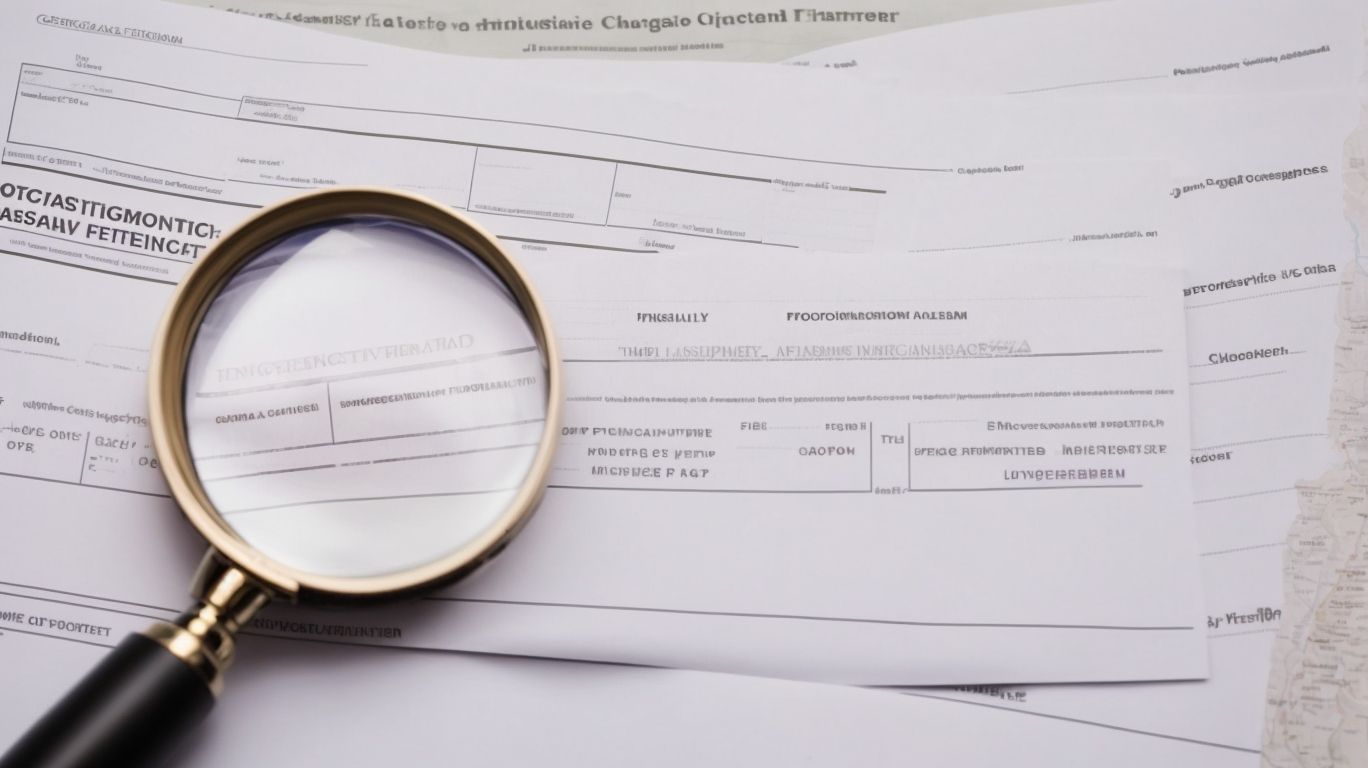Forensic psychology is a fascinating field that combines the principles of psychology with the legal system. In this article, we will explore the different categories of forensic psychology, including clinical, experimental, developmental, social, and legal forensic psychology.
We will also delve into the key roles of a forensic psychologist, such as providing expert testimony, conducting psychological assessments, and consulting with legal professionals. We will discuss the ethical considerations and challenges faced by forensic psychologists, from managing personal biases to maintaining confidentiality. Join us as we unravel the complexities of this intriguing profession.
Contents
- 1 Key Takeaways:
- 2 What Is Forensic Psychology?
- 3 What Are The Different Categories of Forensic Psychology?
- 4 What Are The Key Roles Of A Forensic Psychologist?
- 5 What Are The Ethical Considerations In Forensic Psychology?
- 6 What Are The Challenges Faced By Forensic Psychologists?
- 7 Frequently Asked Questions
Key Takeaways:
What Is Forensic Psychology?
Forensic psychology is a specialized field that blends the concepts of psychology and the legal system, focusing on the application of psychological principles within legal contexts as defined by the American Psychological Association (APA).
This field deals with a wide range of issues related to criminal behavior, mental health law, and expert testimony in court. Its historical development can be traced back to the late 19th century, coinciding with the emergence of psychology as a distinct discipline.
Over time, forensic psychology has evolved to encompass diverse areas of application such as providing evaluations for child custody, aiding in criminal investigations, and analyzing the behavior of individuals involved in legal proceedings.
What Are The Different Categories of Forensic Psychology?
Forensic psychology encompasses various specialized categories, including clinical forensic psychology, experimental forensic psychology, developmental forensic psychology, social forensic psychology, and legal forensic psychology, each tailored to specific contexts and applications.
Clinical forensic psychology concentrates on the intersection of psychology and law within clinical settings. It focuses on assessment, intervention, and treatment of individuals involved in the legal system.
Experimental forensic psychology utilizes scientific research methods to study behaviors, cognition, and decision-making processes related to criminal activities. This contributes valuable insights to legal proceedings and criminal investigations.
Developmental forensic psychology explores the psychological development of individuals from childhood to adulthood in the context of legal matters. It addresses the impact of upbringing and experiences on behavior and decision-making.
Social forensic psychology examines the influence of societal factors, such as culture, environment, and social interactions, on criminal behavior. This contributes to a deeper understanding of the root causes of crime and its prevention.
Legal forensic psychology deals with the application of psychological principles and methods in legal settings. This includes assessment of competency, risk, and mitigation, as well as providing expert testimony in court proceedings.
Clinical Forensic Psychology
Clinical forensic psychology involves the application of clinical psychology principles in forensic settings, focusing on forensic assessment, intervention, and treatment within legal contexts.
This field requires a deep understanding of legal processes, as clinical forensic psychologists often work within the criminal justice system, conducting evaluations to determine competency, assessing risk, and providing expert testimony.
They utilize their clinical skills to assess and treat individuals who have come into contact with the law, addressing mental health issues, such as trauma, substance abuse, and personality disorders.
Their role also extends into interviewing witnesses and suspects, aiding in jury selection, and providing consultation to attorneys and law enforcement.
Experimental Forensic Psychology
Experimental forensic psychology involves the application of scientific research methodologies and psychological principles to investigate and understand legal phenomena, contributing to the body of knowledge in psychology law.
This field encompasses a wide range of studies, including eyewitness testimony, jury decision-making processes, the assessment of deception, and the impact of trauma on memory. Researchers in experimental forensic psychology employ methods such as controlled experiments, field studies, and surveys to explore these intricate dynamics.
The empirical nature of this research not only sheds light on the complexities of human behavior within legal contexts but also informs and guides policies and practices within the judicial system.
Developmental Forensic Psychology
Developmental forensic psychology focuses on the intersection of developmental psychology and the legal system, particularly in contexts relating to juvenile criminal justice, child custody evaluations, and related areas.
Understanding the psychological development of young individuals within the legal framework is crucial. It offers insights into the cognitive, emotional, and behavioral aspects that influence their interactions with the justice system. This aids in the assessment and intervention for juveniles involved in criminal activities, addressing their unique developmental needs while ensuring appropriate accountability.
Social Forensic Psychology
Social forensic psychology examines the social and interpersonal factors that influence criminal behavior, drawing from clinical psychology principles to understand and address these dynamics within legal contexts.
Understanding the social determinants of criminal behavior is essential in developing effective intervention and prevention strategies. Through analyzing factors such as family dynamics, social support networks, and community influences, social forensic psychologists gain valuable insights into the root causes of criminal behavior and its impact on individuals and society at large.
By integrating clinical psychological assessments and behavioral analysis, they provide critical contributions to the legal system, promoting rehabilitation and reducing recidivism rates.
Legal Forensic Psychology
Legal forensic psychology focuses on providing psychological expertise and analysis to inform legal proceedings, often involving the provision of expert testimony and consultation within the legal system.
Expert testimony in legal proceedings requires meticulous analysis and interpretation of criminal behavior patterns, mental health assessments, and the evaluation of witness testimony.
Forensic psychologists play a critical role in assisting the legal system in understanding the psychological motives and implications behind criminal behavior, thereby contributing to the formation of informed decisions and just outcomes. They offer invaluable insights into the psychological impact of criminal acts on victims and the assessment of mental competence, ultimately guiding the legal process towards fair and effective resolutions.
What Are The Key Roles Of A Forensic Psychologist?
Forensic psychologists assume key roles within the legal system, which include providing expert testimony, conducting psychological assessments, developing and implementing treatment plans, and consulting with legal professionals to address various legal questions and concerns.
In their professional practice, forensic psychologists apply their specialized knowledge of psychology to the legal arena, working closely with attorneys, judges, and law enforcement agencies. They conduct forensic assessments to evaluate individuals involved in legal cases, providing insights into mental health, competency, and risk assessments.
Their role also encompasses providing therapeutic interventions for individuals in legal settings, such as correctional facilities, with a focus on rehabilitation and reducing the likelihood of recidivism. They are involved in research and policy development to inform legal practices and procedures.
Providing Expert Testimony
The role of providing expert testimony involves the communication of psychological expertise and analysis to inform legal proceedings, aiding in the resolution of legal questions and concerns within the legal system.
Forensic psychologists play a crucial role in offering a specialized understanding of human behavior to assist judicial authorities in making informed decisions. Their expert testimony can provide insights into the mental state of individuals involved in legal cases, shedding light on motives, mental capacity, or potential risks.
This testimony can significantly impact the outcome of trials, influencing judgments, sentencing, or the allocation of responsibilities in civil cases. The credibility and impartial analysis provided by forensic psychologists can contribute to fair and objective legal determinations, fostering trust in the legal process.
Their evaluations and interpretations of psychological evidence can serve as valuable tools for legal professionals, contributing to a more comprehensive understanding of complex human behaviors within the contexts of law and justice. Ultimately, expert testimony from forensic psychologists is a crucial element in ensuring the fair and just application of the legal system.
Conducting Psychological Assessments
Conducting psychological assessments forms a critical aspect of the forensic psychologist’s role, involving the application of clinical skills and forensic assessment tools to evaluate individuals within legal contexts.
These assessments are essential for understanding the mental state and behaviors of individuals involved in legal proceedings. They aid in determining their competency to stand trial, risk of reoffending, and suitability for rehabilitation programs.
Forensic psychologists use a variety of assessment techniques, including standardized tests, interviews, and behavioral observations, to gather comprehensive data. This information is crucial for making informed decisions in legal settings.
The results of these assessments have a significant impact on legal proceedings, influencing judicial decisions and the provision of appropriate treatment and intervention strategies for individuals within the criminal justice system.
Developing and Implementing Treatment Plans
Forensic psychologists are involved in developing and implementing treatment plans, particularly in the context of adult offender treatment, drawing from principles of clinical psychology to address mental health and behavioral issues within legal settings.
Forensic psychologists utilize a variety of assessment tools, including psychometric tests and structured interviews, to evaluate the mental health status and risk factors of adult offenders.
Based on these evaluations, tailored treatment interventions are designed to target specific criminogenic needs and underlying psychological issues.
Using evidence-based practices, forensic psychologists employ techniques such as cognitive-behavioral therapy, anger management, and substance abuse interventions to address the complex needs of adult offenders.
They also monitor the progress and outcomes of treatment plans, ensuring they align with legal requirements and rehabilitation goals.
Consulting with Legal Professionals
Forensic psychologists engage in consulting with legal professionals, providing psychological insights and expertise to address legal questions and concerns within various legal contexts.
This collaboration plays a vital role in the legal system, where forensic psychologists use their specialized knowledge to assess criminal behavior, evaluate competency and mental state, and provide expert testimony in court.
They work closely with lawyers, judges, and law enforcement officers to ensure that legal proceedings consider the complexities of human behavior and mental health factors. Their input can influence decisions regarding sentencing, rehabilitation programs, and the understanding of defendants’ motives and actions.
What Are The Ethical Considerations In Forensic Psychology?
Ethical considerations are integral to the practice of forensic psychology, encompassing adherence to ethical guidelines and standards as defined by the American Psychological Association (APA) and other relevant professional bodies.
Such considerations are crucial in maintaining the integrity and trust within the field of forensic psychology.
Forensic psychologists are entrusted with sensitive information and play a significant role in legal proceedings, necessitating the utmost professional conduct and ethical decision-making.
Adhering to ethical standards ensures that psychologists prioritize the well-being and rights of individuals involved in legal matters, while also upholding the principles of fairness and justice.
What Are The Challenges Faced By Forensic Psychologists?
Forensic psychologists encounter various challenges within their professional practice, including dealing with high-stress situations, balancing objectivity and advocacy, working within the criminal justice system, managing personal biases, and maintaining confidentiality within legal contexts.
Working within the criminal justice system requires forensic psychologists to navigate complex legal procedures and regulations. This often involves testifying in court and collaborating with law enforcement agencies. It demands a deep understanding of legal terminology and procedures, as well as the ability to effectively communicate with legal professionals.
Managing personal biases is crucial for forensic psychologists in order to ensure fair and unbiased assessment of individuals involved in legal proceedings. This can be particularly challenging in emotionally charged cases.
Dealing With High-Stress Situations
Forensic psychologists often confront high-stress situations, particularly in cases involving complex criminal behavior, requiring resilience and professional composure to address the psychological complexities and legal implications effectively.
Working in high-stress environments can have a profound impact on a forensic psychologist’s mental and emotional well-being. They are often exposed to intense situations, such as crime scenes, court testimonies, and interactions with individuals exhibiting challenging behaviors.
This constant exposure can lead to heightened levels of stress, burnout, and compassion fatigue, placing a significant strain on their overall mental health.
Balancing Objectivity and Advocacy
Balancing objectivity and advocacy poses a significant challenge for forensic psychologists, as they navigate the complexities of legal contexts while striving to maintain professional neutrality and integrity in their roles.
One of the primary difficulties lies in the delicate equilibrium required to present findings and expert opinions without being swayed by the litigious nature of the legal system.
Forensic psychologists must adhere to ethical considerations while also effectively advocating for the interests of their clients or the justice system. Striking this balance necessitates a deep understanding of the intricacies of legal procedures and the need for objective analysis, all while upholding the highest standards of professional conduct.
Working Within the Legal System
Navigating the legal system presents challenges for forensic psychologists, as they engage with complex legal issues, procedures, and regulations while addressing the psychological dimensions of legal cases and proceedings.
Forensic psychologists involved in the legal system must adeptly handle the intricacies of court proceedings. This includes providing expert testimony, conducting evaluations for competency, sanity, and mitigation, and assessing the impact of trauma on victims and witnesses.
They are often tasked with evaluating the credibility of witnesses, aiding in jury selection, and advising legal professionals on matters relating to mental health and behavior. Ethical considerations play a crucial role in their work, as they must navigate confidentiality, informed consent, and the potential misuse of psychological assessments within the legal context.
Managing Personal Biases
Managing personal biases represents a crucial challenge for forensic psychologists, as they strive to maintain professional objectivity and integrity while addressing complex psychological and legal dynamics within the domain of psychology law.
Forensic psychologists encounter various ethical considerations when managing personal biases.
They are tasked with the delicate balance of acknowledging their own perspectives while remaining impartial in their assessments and testimonies.
This involves continuous self-reflection, ongoing education, and adherence to professional conduct standards set forth by regulatory bodies within the field.
Maintaining Confidentiality
Maintaining confidentiality within the legal system presents a significant challenge for forensic psychologists, as they navigate the delicate balance between professional confidentiality and legal requirements within forensic settings.
Forensic psychologists are often faced with complex scenarios where they must safeguard sensitive information related to criminal cases, evaluations, and treatment interventions while adhering to a myriad of legal regulations and ethical considerations.
The very nature of their work involves interactions with various parties including law enforcement, courts, correctional facilities, and other professionals, making it essential to uphold the highest standards of confidentiality. This could involve addressing the ambiguity posed by the intersecting laws and professional guidelines, ensuring that disclosure of information is only carried out when it is deemed necessary and in compliance with the applicable legal and ethical standards.
Maintaining confidentiality becomes more challenging in the digital era, requiring measures to protect sensitive data from unauthorized access and breaches that could compromise the integrity of the work of forensic psychologists.
Frequently Asked Questions
What is forensic psychology?
Forensic psychology is a field of psychology that applies psychological principles to legal and criminal justice systems. It involves the understanding of human behavior, mental health, and how it relates to the legal system.
What are the different categories of forensic psychology?
The different categories of forensic psychology include criminal psychology, investigative psychology, legal psychology, and correctional psychology. Each category focuses on a specific aspect of the legal system.
What is criminal psychology?
Criminal psychology is the study of the psychological factors that contribute to criminal behavior. It involves understanding the motivations, thought processes, and behaviors of criminals in order to aid in criminal investigations and trials.
How does investigative psychology differ from criminal psychology?
Investigative psychology focuses on criminal investigations and profiling, while criminal psychology focuses on understanding the minds of criminals. Investigative psychology uses psychological principles to analyze crime scenes and gather evidence, while criminal psychology focuses on the individual.
What is the role of legal psychology?
Legal psychology involves the application of psychological principles to the legal system. This can include evaluating the competency of individuals to stand trial, providing expert witness testimony, and assisting with jury selection.
What is correctional psychology?
Correctional psychology is the application of psychology to the criminal justice system for the purpose of rehabilitating criminals. It involves working with incarcerated individuals to address their mental health and behavioral issues, with the goal of reducing recidivism rates.






